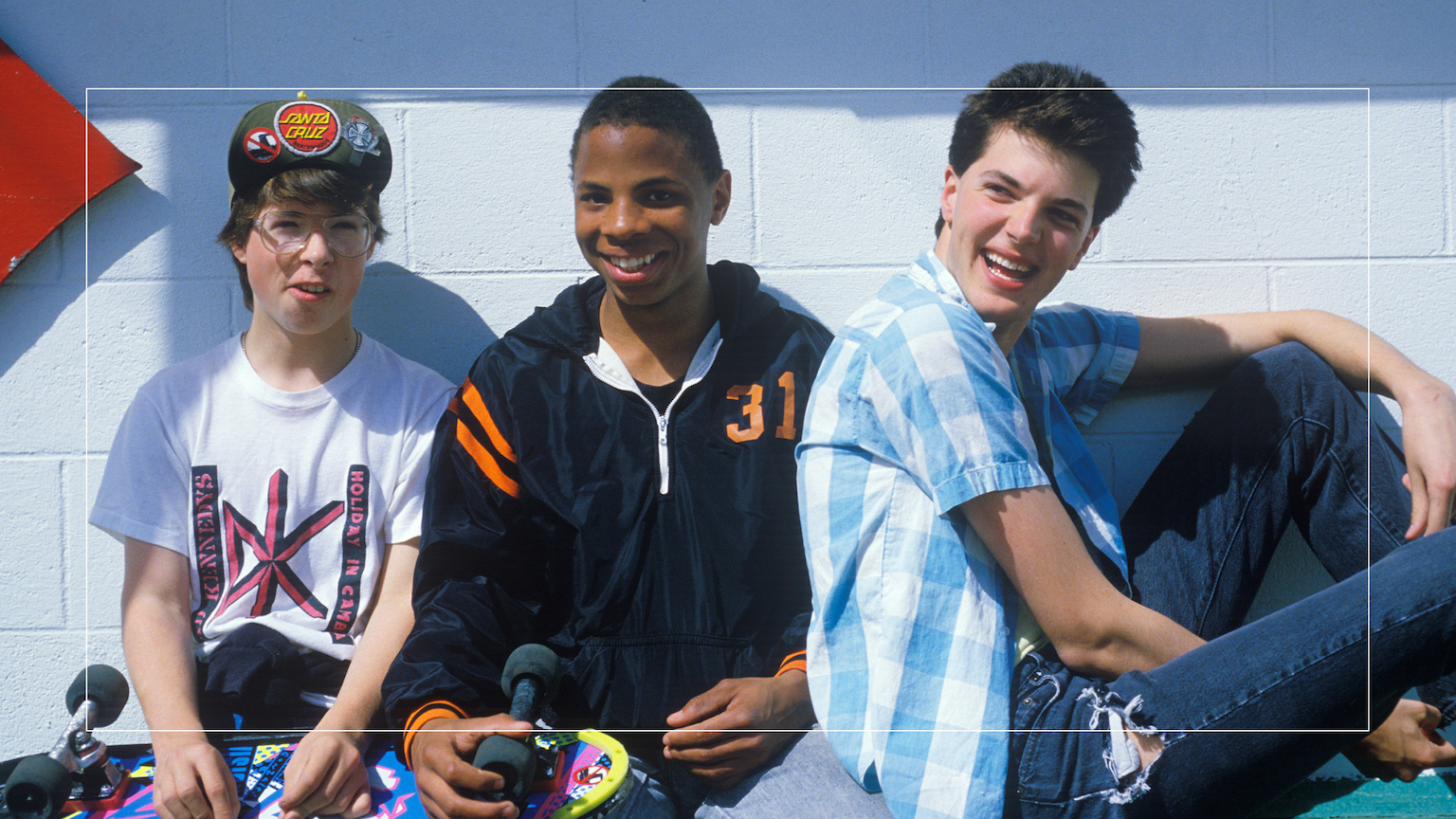5 harmful myths and 5 inspiring truths about teenagers

- There are five big myths about teenagers, the most pernicious of which may be that they don’t care what adults think. They absolutely do.
- We must see teens through a lens of development. This will allow us to understand them and prepare them!
- Society needs to replace the five big myths about teenagers with the five essential truths.
Adolescence is a time of opportunity and astonishing growth. Full stop. Teen brains are growing at a pace matched only by the first three years of life and never to be approached again. Their ability to relate to others is expanding, and their capacity to navigate new social situations is solidifying. The knowledge gained and lessons learned during adolescence enable them to reach their full potential in adulthood.
When parents believe in that potential, they commit to helping their children by offering close guidance while encouraging active learning. They model and share essential strategies for teens to use on their journey toward adulthood. They enable their children to step up and face challenges by creating the deep-seated security and confidence that comes from knowing they have caring adults on their side.
What comes to mind when you hear the word “teenager?” Our thoughts shape our attitude towards young people. In turn, our attitude impacts the way we act toward teens. And our actions influence how teens respond to us — and most critically — how they think about themselves. For all these reasons, our perceptions of them affect whether they will launch into adulthood equipped with the character strengths — integrity and empathy, among others — that will position them to lead us into the future.
You might ask, “How could parents not believe in their children’s potential? Why would they not grasp their irreplaceable role in optimizing that promise?” When our children are young, there is no question about how important we are to them. They rely on us for their survival. Their intellect is built and curiosity is encouraged as we introduce them to the world, and they turn to us whenever they need reassurance.
Yet as our children enter adolescence, too many parents find themselves in a crisis of confidence, wondering, “Do I still matter?” We must ensure parents are empowered by knowing the answer is a resounding, “Yes!” We must reframe adolescence so every parent understands they make a difference in their teen’s lives. It starts by replacing the all-too-common false and undermining stereotypes portraying teens as risky, rebellious, and too self-absorbed to be interested in adult input.
Five big myths about teenagers
How does this misleading narrative about adolescents gain a foothold? It often starts with uninvited “wisdom” offered by bystanders. A parent might be in the grocery store line or the stands at a sporting event when their preteen rests their head lovingly on their shoulder. A well-meaning stranger interrupts, “Get those hugs now! Your child will turn into a monster you won’t recognize!” Ouch! The parent who then reaches for expert guidance finds many books framed in the language of survival. This distorted view of adolescence fills parents with a sense of loss for the end of childhood instead of anticipation for the next developmental phase.
Critically, adolescents are sensitive to unspoken signals and understand that their parents dread their growth. They worry they are disappointing their parents just by growing — this, in turn, leads them to become uncomfortable with their development and mourn what they believe is the impending loss of their relationship with their parents. When faced with a barrage of messages, even subtle ones, of low expectations, teens may believe that is all they should expect from themselves. These expectations can lead to more risk-taking and rebelliousness.
Parents and all adults should stand solidly on the side of development. I am hesitant to repeat the myths that drive our negative cultural narrative about adolescents. The paradigm-shifting work of The Frameworks Institute cautions that we should not repeat falsehoods, lest we inadvertently reinforce them. However, I trust that once you recognize them as harmful misperceptions, you will resist letting them shape how you think about parenting or about youth in your community.
Myth #1: Adolescents do not care what adults think and are uninterested in what their parents think, say, or do.
Myth #2: Adolescents do not care much about what they learn. They would rather hang out with friends and have fun.
Myth #3: Adolescents are driven by emotion, so it is hard to talk sense into them.
Myth #4: Adolescents think they are invincible and are wired for risk.
Myth #5: Adolescents are self-centered and selfish.
These myths harm our relationships and prevent us from fully engaging with our adolescents. Why would you engage if you sense your child doesn’t like you or care what you think? If you mistakenly believe you cannot reason with teens, why would you bother to guide them to develop their emotional intelligence or think through decisions? If you conclude teens are naturally inclined toward risk, you should insulate them with restrictions instead of guiding them to think for themselves and to make wise, healthy decisions.
See teens through a developmental lens
Adolescent advocates have long recognized the need to address the undermining cultural narrative about teens. The shift in thinking and practice of adolescent development has been catalyzed by the National Academies report “The Promise of Adolescence: Realizing Opportunities for All Youth.” Experts agree that we must seize the opportunity adolescence offers to develop young people to their potential and that parents are the most influential people in teenagers’ lives.
We must not sugarcoat realities as we move toward an accurate understanding of adolescence. Teens do often push parents away, and this can cause parents distress. We should not deny this; rather, we should help parents understand the developmental context of behaviors. For example, parents are sometimes pushed away as part of the hard work adolescents undertake as they move toward greater independence. They have relied entirely on their parents and love them deeply. Becoming independent from them can be emotionally gut-wrenching. In other words, teens resenting their parents is a byproduct of how much they love them. That additional piece of developmentally accurate information can entirely change how parents experience adolescence. Further, teens are making a necessary transition from being centered on the family to being peer-focused. Learning to navigate peer relationships is a key developmental task because it helps adolescents prepare for real-world scenarios including jobs, adult friendships, and romantic relationships.
When parents perceive teens through a developmental lens, they can more easily remain strength-focused. Perhaps the most protective force in a young person’s life is the unconditional regard a parent holds for them. The deep-seated knowledge a parent has of all that is good and right about their child remains the “north star” that allows the adolescent to remain rooted in their own values. This irreplaceable relationship enables parents to support teens in learning how to navigate challenging experiences. They can learn from their mistakes when they know that they are not expected to be perfect. (Who among us is?). It is how deeply they are loved that helps them realize they are worthy of being loved, providing virtually unrivaled lifelong protection.
Five essential truths about teenagers
Let’s shift our culture toward being pro-development by highlighting five essential truths about teens. We must share these truths whenever and wherever we speak of teens. If we do this, the undermining myths will take their rightful place in the dustbins filled with long-held but mistaken and disproven assumptions.
1) Teens care deeply about their parents and want their involvement in their lives. They worry about their parents’ well-being and want to please them. Teens want to hear parents’ opinions and learn about their values. Young people cherish time spent with their parents. Most teens consider their parents to be role models and want to be like them. Parents are the most influential people in their teens’ lives. Through their active guidance, shared wisdom, and unconditional presence, they have an irreplaceable role in their adolescent’s development and well-being.
2) Teens are super learners. Adolescence is a time of rapid and astounding brain development. Teenagers discover more during adolescence than any time following. Parents can help shape their children’s future far into adulthood by nurturing this development. Parents should give their children chances to expand their knowledge and support their problem-solving skills. It can be a particular thrill for parents when they recognize their children’s expanding ability to consider complexity and witness how teens use this newfound ability in their everyday lives.
3) Teens can be as thoughtful as adults. The emotional centers in the developing adolescent brain are growing rapidly. The thinking and reasoning centers are also developing actively but lag slightly behind. When their emotions are triggered, their highly developed emotional centers dominate, interfering with the optimal use of their developing reasoning skills. To drive this point home: Adolescents do their best thinking when calm. When parents co-regulate with them (that is, lend them their calmness) and talk to them in a way that does not trigger them emotionally, adolescents can access their thinking skills as readily as an adult. Adolescents value respectful, calm conversations that engage them in developing their own solutions.
4) Teens are natural explorers. Their desire to try new things is key to them gaining new knowledge. They have a propensity to push boundaries and explore limits because it is at those limits that new knowledge exists. Parents and society should offer enriching opportunities at the edges of existing knowledge, allowing teens to stretch. Teens do not seek risk. They want to avoid danger. But they need parents to offer them guidance about how to expand their knowledge and skills safely. This includes creating clear boundaries beyond which they cannot stray. It also includes adults sharing what they have learned through life’s experiences. Ultimately these boundaries and shared wisdom allow adolescents to develop their decision-making skills in safe settings.
5) Teens are idealists who see what is wrong in the world and want to do something about it. Because teens have a newfound ability to see complexity coupled with the fact that they have not learned to accept problems as inherently inalterable, they often are at the forefront of efforts to solve societal issues. We rely on them to envision a better world. Parents should support them to find opportunities to support their neighbors and get involved in their communities. We should amplify their voice when they call attention to problems we have ignored for too long.
Create a new teenage narrative
All our actions, both spoken and silent, impact the milieu in which teens develop. A starting point is creating a new cultural narrative that tells the truth about teens. We must unlearn the biases we have internalized after repeated exposure to risk-centered portrayals of teens. Equipped with these developmental truths, we can take action and optimize the promise of adolescence. So, the next time a friend of yours tells you that their child will be entering the teen years, say, “Congratulations! What a great opportunity you’ll have to support your child in their journey toward adulthood.”





